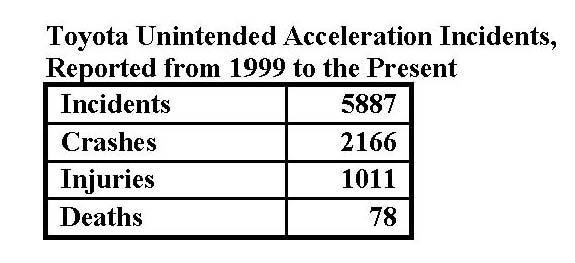Keep repeating: Toyota’s fault detection system is perfect. Toyota’s fault detection system is perfect. Toyota’s fault detection system is perrrrrfect…..
Did that help?
Number One Automaker Toyota has hypnotized NHTSA in several sudden unintended acceleration investigations by chanting that phrase. Its fault detection system could not be breached, Toyota said, and therefore drivers who reported SUA were nuts or incompetent. Continue reading
